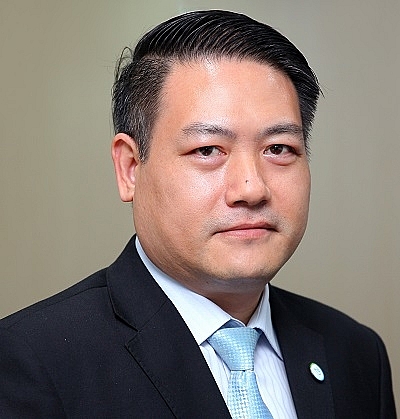Bettering new social insurance policy on foreigners
 |
| Bettering new social insurance policy on foreigners, Photo: Shutterstock |
One of Vietnam’s leading English-language training centres, Apollo Education and Training Organisation (Apollo) has more than 400 foreign teachers working across the country and is one of the most hard-pressed to apply Decree 143.
Nguyen Kim Dung, head of Apollo’s Legal, Compliance and Government Relations, told VIR that the procedures to pay insurance after foreign labourers are very complicated and are causing the company concerns. For instance, is examination in public hospitals possible for non-Vietnamese speakers? Does the insurance agency pay for foreign-language prescriptions? And do procedures to get death benefits have to be notarised and translated?
“We worry that the complications may undermine the government’s policy on insurance for foreign workers. It is necessary to issue simple and convenient guidelines and procedures for foreign labourers to really enjoy the benefits of the policy,” Dung added.
Similarly, a source from the Ministry of Labour, Invalids and Social Affairs (MoLISA) told VIR that three months since Decree 143 took effect, few businesses have been paying insurance after their foreign labourers.
“The main reason behind the poor performance is that major businesses face difficulties in dealing with insurance procedures in Vietnam. In addition, businesses’ remain reluctant to pay,” the representative of the MoLISA said.
He also added that to force businesses to pay insurance, the first thing to do would be to grant insurance books to foreign workers. This would require foreign labourers to provide personal information, even their employment history to the businesses where they work. Afterward, businesses can collect the information to file with insurance agencies before granting the insurance books.
“To make foreign labourers provide their personal information and past working activities, would require agreements between Vietnam and their home country,” the representative said.
Currently, Vietnam and South Korea are over four rounds of negotiations on signing bilateral agreements on social insurance. Japan is still researching the issue before entering into negotiations with Vietnam. Germany has agreed with Vietnam on the negotiations’ content. Finally, Taiwan is also doing research before deciding to sign an agreement with Vietnam.
As no bilateral or multilateral agreements on social insurance have been signed between Vietnam and other countries has added to the difficulties of implementing and enforcing Decree 143.
As the world economy becomes ever more integrated, over the past few years, the number of foreign workers in Vietnam and Vietnamese workers in other countries have increased. According to the latest data published by the MoLISA, the number of foreign labourers in the country hit 83,046 in 2016 against the 63,557 in 2011. Additionally, the MoLISA’s Department of Overseas Labour stated that the number of Vietnamese people working overseas in 2018 reached more than 140,000, up 7 per cent on-year.
Thus, the increasing number of foreign workers in Vietnam and Vietnamese workers in other countries have made it necessary to apply the insurance policy.
Tran Hai Nam, deputy director of the MoLISA’s Department of Social Insurance, previously told VIR that amidst the trend of integration, Decree 143 was launched to create equality for foreign and Vietnamese workers. In addition, the decree also contributes to protecting Vietnamese workers overseas.
Nam explained that South Korean law stipulates that workers need to be employed for 10 years to be eligible for pension. Thus, if Vietnam and South Korea do not sign an agreement, Vietnamese workers have to work for 10 years in South Korea to get pension there. However, if the two sides reach an agreement on social insurance, labourers could work in Vietnam for five years and another five in South Korea to be eligible for pension from both countries.
“Vietnam is committed to accord equal treatment to foreign workers, just like other countries treat Vietnamese workers equally,” Nam added.
| Under Decree 143, foreign labourers who hold a work permit of more than one year are subject to compulsory social insurance in the country. Accordingly, between December 1, 2018 and December 31, 2021, employers have to pay 3.5 per cent of their foreign employees’ salary for social insurance. From January 1, 2022, this rate will increase to 17.5 per cent, and employees themselves will have to pay an additional 8 per cent. |
Over the past few years, businesses in Vietnam have been growing concerned about the potential burdens the country’s social insurance policy could impose on them.
Regarding the issue, Dung from Apollo told VIR that paying an additional 3.5 per cent for insurance has impacted the company’s activities, as operation costs increase but its gross revenues remained the same.
Dung affirmed, “This is a significant challenge for Apollo, but we have to comply with these policies because they ensure equal treatment and protect our teachers and other foreign workers in Vietnam.”
| Bui Ngoc Tuan, tax partner of Deloitte Vietnam
Foreign employees will now be required to comply with Social Insurance (“SI”) obligations in addition to Personal Income Tax, Health Insurance, Work Permit and Immigration regulations. This will incur additional employment cost for employers. From the foreign employee perspective, this insurance policy protects them from unexpected risks and circumstances while working in Vietnam, yet, for those whose income is paid on a gross basis, their net take home income will be reduced accordingly. From authorities’ view, the purpose of the SI scheme for foreign labors are to create a fairness position as for Vietnamese employees. This might be reasonable for foreign employees with over one year contract as they work in Vietnam under a long-term period and might expose to higher labor and social security risks than short-term employees. In this case, protection from social security must be considered. Social statistics shows that the percentage of foreign employees under one year contract is just below 5 per cent of the total number of foreign employees currently working in Vietnam. Not taking into account this group of employees would also reduce the administrative burden for SI authorities in managing and supervising process. These employment costs might make Vietnam less attractive in the regional as well as global labor market. In the time whereby the Vietnamese economy is still in need of skills and expertise from foreign employees in selected industries (especially high tech), this might be a challenge for local employers to import high-quality human resources from overseas. Requirements to participate in the SI scheme is common in other foreign countries. It is considered as a type of tax, such as social security tax, imposed on income received by foreign employees in order to maintain a fund covering unexpected risks during work. In line with a normal double tax treaty between countries, if a person becomes a resident of other country due to their length of stay (for example, over 183 days in a tax year), then the right to impose individual related taxes belongs to such country of resident. Accordingly, if a foreigner to be resident of Vietnam, then Vietnam has right to impose PIT and other statutory duties like SI to him. Under international practices, several countries have participated in the Social Security Agreement (SSA) to avoid double–insurance contribution over different countries. With the Certificate of Coverage, the foreign employees might be eligible to be exempted from Social Security requirement in host countries. However, at this date, Vietnam has currently not entered into any SSA with any other countries in the world, so double insurance may still exist. Only when the SSAs are in place- which are expected to be in a long run, this might be eliminated. At this moment, foreign employees will have to comply with and pay SI in Vietnam with the existence of double insurance. However, there are exemption cases under the current regulations whereby SI might not be imposed, like (i) foreign employees under internal transfer scheme from parent companies to Vietnamese companies or (ii) foreign employees beyond working ages. Employers might consider these exemption conditions in order to avoid SI requirements. |
What the stars mean:
★ Poor ★ ★ Promising ★★★ Good ★★★★ Very good ★★★★★ Exceptional
Related Contents
Latest News
More News
- Shinhan Life Vietnam builds growth on people strategy (October 07, 2025 | 09:45)
- Insurance sector initiates rapid response after Typhoon Bualoi devastation (October 03, 2025 | 18:25)
- Non-life insurers face mounting pressure after typhoon hits motor sector (October 02, 2025 | 18:59)
- Prudential Vietnam delivers responsible investment package (September 25, 2025 | 10:37)
- Insurers struggle to keep pace with EV rapid adoption (August 29, 2025 | 17:12)
- Non-life insurance market in sees bright spots in H1 despite rising challenges (August 28, 2025 | 16:21)
- Life insurance rebounds with renewed growth and trust (August 06, 2025 | 18:04)
- Global Care launches Vietnam’s first insurance KOL platform (July 25, 2025 | 09:42)
- Liberty Insurance leaves mark at 2025 Insurance Asia Awards with dual wins (July 14, 2025 | 07:27)
- New CEO takes helm at Prudential Vietnam (July 07, 2025 | 17:51)


 Tag:
Tag:




















 Mobile Version
Mobile Version